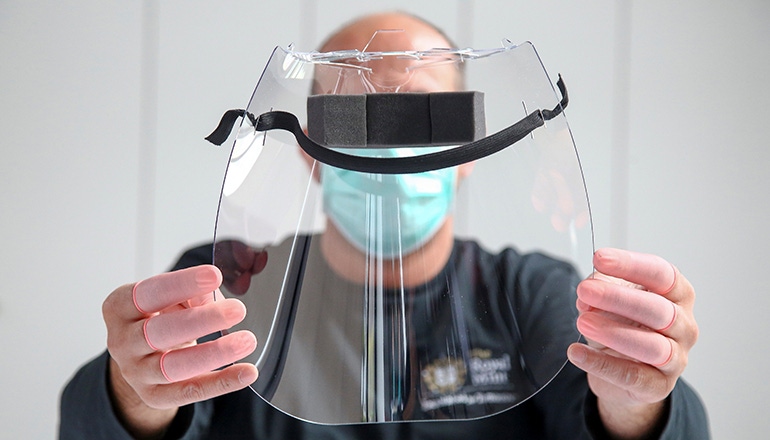The medical visors will be used to help in the fight against COVID-19.

Cascades, a packaging solutions provider based in Kingsey Falls, Quebec, announced that it will supply recycled plastic needed to make medical visors to help in the fight against COVID-19. This comes in response to an initiative led by Tristan, a Quebec-based clothing company, and Bauer, a hockey equipment provider, which will ensure the final assembly of the components.
Cascades already manufactures rolls of extruded plastic to supply Tristan. On April 6, it also started production of a minimum of 1 million pre-cut visors for Bauer. The first units will be delivered this week. All of these products will be made at the Cascades Inopak plant in Drummondville, Quebec. Cascades' efforts are supported by nu-b, a company located in Vaudreuil, Quebec, which supplies extruded rolled plastic for this project.
Cascades applauds the leadership of businesses such as Bauer and Tristan—with whom Cascades is already collaborating—for initiating local projects to manufacture much-needed medical equipment during this pandemic.
"Our company is very pleased to be able to contribute to these promising and important initiatives by providing materials and components," said Mario Plourde, president and CEO of Cascades, in a statement. "We applaud the organizations launching these projects and want to thank our employees for their remarkable agility and dedication."
Other projects have been submitted to Cascades, and the company is assessing the feasibility of supplying materials and production capacity needed for their completion. These special orders will be added to Cascades' current production activities and will not interfere with the company's ongoing ability to manufacture essential products. Cascades has been recognized as an "essential" business during this crisis and all of its plants remain operational. The health and wellbeing of its employees remain a top priority and all necessary measures are being taken to protect their safety.
About the Author(s)
You May Also Like


